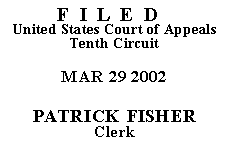

Defendant Enrique Lazcano-Villalobos, a federal prisoner appearing pro se, seeks a certificate of appealability (COA) to appeal the district court's dismissal of his motion to vacate, set aside, or correct sentence under 28 U.S.C. § 2255. Because he has failed to make a "substantial showing of the denial of a constitutional right" as required by 28 U.S.C. § 2253(c)(2), we deny his request for a COA and dismiss the appeal.
In 1998, defendant was convicted by a jury of possession with intent to distribute more than five kilograms of cocaine, in violation of 21 U.S.C. § 841(a)(1), and he was sentenced to 108 months' imprisonment. His conviction was affirmed on appeal. See United States v. Lazcano-Villalobos, 175 F.3d 838 (10th Cir. 1999).
Defendant filed the present § 2255 motion on April 27, 2000, alleging ineffective assistance of trial counsel and arguing that the sentencing guidelines were incorrectly applied. On October 20, 2000, he filed a motion to amend to assert a claim based on Apprendi v. New Jersey, 120 S. Ct. 2348 (2000). The magistrate court found defendant failed to show counsel's performance was constitutionally ineffective or that he was prejudiced by counsel's performance. The magistrate further determined that defendant was sentenced within the guideline range for his base level offense and that, even if Apprendi were applied retroactively, defendant's sentence did not exceed the statutory maximum. The district court adopted the magistrate's report and recommendation and dismissed the petition.
Defendant claims deficient performance by his trial counsel based on failure to provide defendant with a copy of the government's proposed plea agreement. He claims he was unaware that the government proposed any type of plea agreement and he thought trial was his only option. However, the government attached an affidavit by defendant's trial counsel to its response to defendant's § 2255 motion in the district court. Record, Doc. 4, Exh. 1. In the affidavit, counsel stated he recommended pleading guilty and communicated to defendant three separate plea offers proposed by the government. Counsel stated that on each occasion, "Defendant rejected the government's offers, insisting on his desire to go to trial to try and convince a jury of his innocence." Id. at 2. Further, defendant replied to the government's response by filing his own affidavit stating that trial counsel "recommended I go to trial and not accept the proffered plea agreement," id., Doc. 6, but he also stated he never received a copy of the proffered plea agreement. At a minimum, were we to review only defendant's statements, defendant was clearly aware that a plea agreement had been proposed and counsel discussed it with him.
The decision of whether to accept a plea agreement lies ultimately with the defendant and cannot serve as a basis for an ineffective assistance of counsel claim. See Fed. R. Crim. P. 11(d). The failure by counsel to inform his client of a plea proposal proffered by the government could serve as a basis for an ineffective assistance of counsel claim, but, by defendant's own admissions, counsel did not fail in that regard in this case. As regards the question of whether the substance of the plea offers was communicated to the defendant, the district court accepted defense counsel's representations that the plea offers were communicated. It is immaterial if the documents themselves were not given to defendant, as long as he was aware of their contents. While it may have been wiser for trial counsel to memorialize his exchanges with defendant regarding plea negotiations, his failure to do does not rise to a substantial showing of a constitutional violation.
Defendant also claims his trial counsel was ineffective because he argued Fifth Circuit case law on the issue of constructive possession in a joint occupancy situation. His argument refers to his motion for acquittal at the close of the government's case-in-chief. Trial counsel argued the government failed to prove that defendant knowingly possessed the cocaine and that knowledgeable possession requires "circumstantial evidence that is suspicious in nature or demonstrates guilty knowledge." Lazcano-Villalobos, 175 F.3d at 844 (quoting United States v. Anchondo-Sandoval, 910 F.2d 1234, 1236 (5th Cir. 1990)). In his direct appeal, we stated that "our requirement that the government present direct or circumstantial evidence to show some connection or nexus individually linking a defendant to the contraband, is sufficient to protect the interests of the defendant in a joint occupancy situation." Id. at 845. Further, "even if we applied the Fifth Circuit's standard, we believe the circumstantial evidence is sufficiently 'suspicious in nature' or demonstrates sufficient 'guilty knowledge' to support the district court's denial of Mr. Lazcano-Villalobos' motion for acquittal and the jury's verdict." Id. Defendant has not shown how trial counsel's attempt to urge this court to apply a more lenient standard to the issue of constructive possession was either ineffective or prejudicial.
Defendant's request for a certificate of appealability is DENIED and the appeal is DISMISSED. The mandate shall issue forthwith.
Entered for the Court
Mary Beck Briscoe
Circuit Judge
*.This order and judgment is not binding precedent, except under the doctrines of law of the case, res judicata, and collateral estoppel. The court generally disfavors the citation of orders and judgments; nevertheless, an order and judgment may be cited under the terms and conditions of 10th Cir. R. 36.3.